- Recent Posts
- Grooming & Personal Care
- Hair Care
- Squatch Men: Lifestyle
- The Great Outdoors
- Natural Living & Health
- Man Stuff
- Ultimate Guides
Thu, Sep 03, 2015• 06:30• Ultimate Guides
The Truth About Lye: A Short History of Soap
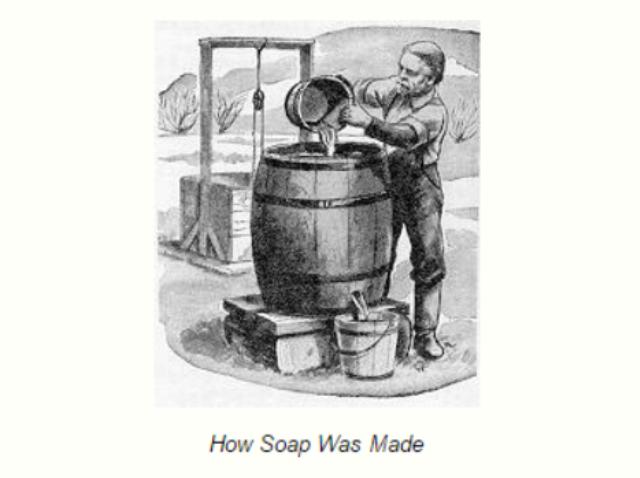
Without lye, there is no soap. Sure, we have heard horror stories about the harshness of lye as a product on skin, but in order to make soap, you have to have lye. Luckily, after completing the soap making process, there is no lye in the finished product. And while some beauty bars and detergents still contain lye, a true soap such as Dr. Squatch’s Bay Rum contains no lye in the finished product.
So What is Lye?
As I’m sure you’ve figured out, soap is not a natural product in nature. Soap first starts with lye or alkali, a liquid created by leaching ashes of potassium carbonate or potash. Then, the lye is added to vegetable oils and animal fats, causing a chemical reaction known as saponification. While the strong alkaline solution is all but eliminated, what is left is a basic soap, excess fat, and glycerin. So when you look at a quality soap that is carefully crafted, you should find that it either mentions a variety of natural oils, or, as in Dr. Squatch’s case, “Saponified Oils.”

The History of Soap: It’s Grand Discovery
Man has been making soap making for at least 4000 years. No one exactly knows who made the grand discovery, but it was the Babylonians who first came up with a recipe for lye soap and carved it into a tablet. There is no evidence as to whether Babylon used the recipe for washing people or their supplies, but 500 years later, it was frequently recorded that Ancient Egyptians bathed regularly with their version of soap.
Dark Times
Soap and lye did not always get a great rep. In fact, around 500 B.C., Ancient Rome frowned upon this strange substance used by the savage Gauls. Eventually, things caught on and Aretaeus of Cappadocia as well as Zosimos of Panopolis discussed the idea of using processed lye soap for hygiene purposes.
The Dark Ages were another time of unwashed masses. While everyone suffered under the thumb of their warlord kings, the public baths of Rome were closed in favor of private bathing or no bathing at all. It’s a good thing the baths closed, as the Black Plague would have turned the baths into a cesspool of disease as it spread through Europe from the Middle ages through the seventeenth century.
The Many Renaissances of Soap

Two centuries before Michelangelo painted the Sistine Chapel, soap was becoming its own work of art. 14th century France saw the development of Castile soap, and soap once again soared in popularity.
France succeeded in forwarding the cause of personal hygiene four centuries later as chemist Nicolas LeBlanc synthesized a solution of sodium hydroxide, creating the first ever man-made lye. The new lye became a standard for soap making from then on, transforming soap into an affordable commodity for all.
The Reign of Personal Hygiene
In order to understand the importance of which soap to buy, you have to understand its history. After all, it has taken a millenia to hone the skill and craft of soap making.
Most other products on the market today are not true soaps by true definition, many still containing a little bit of lye because of their high energy processes. Since hygiene is such an integral part of who we are that it has become a daily ritual, perhaps this is where in part the fear of lye comes from. Thanks to history, we have modern artisan and handcrafted soaps that do not contain lye in the finished product. A safe product as it’s always been, and, as it always should be.

Sources:
- https://en.wikipedia.org/wiki/Lye
- http://candleandsoap.about.com/od/soapmakingsafety/tp/Making-Lye-from-Wood-Ashes.htm
- http://www.soaphistory.net/
- http://www.realhandmadesoap.com/folders/FAQ/what_is_saponification.htm
- https://www.alcasoft.com/soapfact/history.html
Related Posts
WTF are Plant Butters?
Wed, Jan 22, 2025• Grooming & Personal Care Natural Living & Health
You might be wondering, “WTF are “plant butters”? Is that like vegan “I can’t believe it’s not butter?”. No, but we’re glad you asked. These rich, ...
Read More5 Protips For A Better Shave
Fri, Jan 03, 2025• Grooming & Personal Care
Let’s be real, shaving is a combat sport. I mean you’re dragging a sharp blade across your face on the reg. Nicks, irritation, tight, dry skin afte...
Read MorePucker Up: Lip Care For Men 101
Fri, Dec 20, 2024• Grooming & Personal Care
Let’s face it (see what we did there?)—lip care is for everyone. Whether you're battling the elements, exploring the great outdoors, or just living...
Read MoreHow To Choose the Right Cool Weather Scent
Mon, Dec 16, 2024• Grooming & Personal Care
No matter where you’re at, we deep into the cool and cold weather (well, not you Hawaii) and that means it’s time to evaluate your scent seasonalit...
Read MoreCategories
Recent Posts
-
WTF are Plant Butters?
Wed, Jan 22, 2025
-
5 Protips For A Better Shave
Fri, Jan 03, 2025
-
Pucker Up: Lip Care For Men 101
Fri, Dec 20, 2024
-
How To Choose the Right Cool Weather Scent
Mon, Dec 16, 2024
-
The Top 8 Holiday Movies Of All Time
Thu, Dec 05, 2024

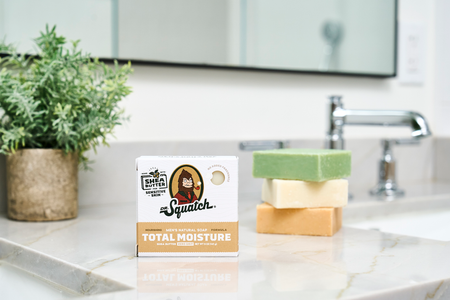
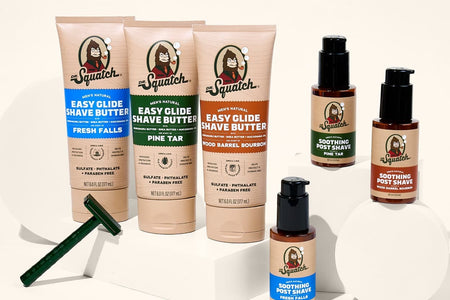
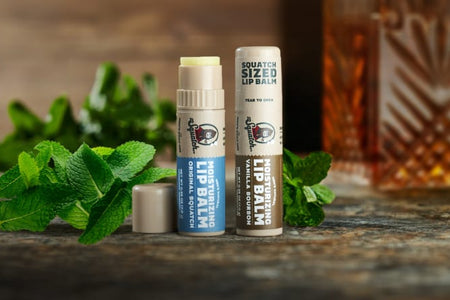
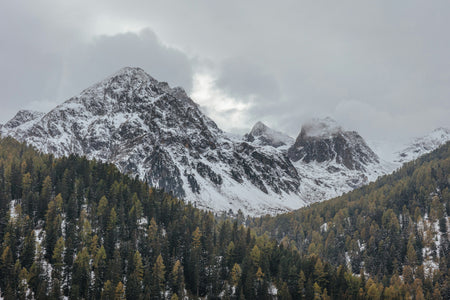
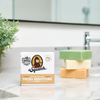
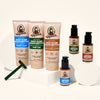
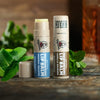


Leave a Reply
Your email address will not be published. Required fields are marked *